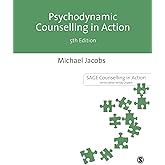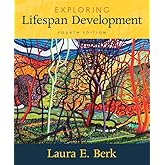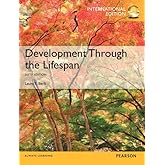
Download the free Kindle app and start reading Kindle books instantly on your smartphone, tablet or computer—no Kindle device required.
Read instantly on your browser with Kindle for Web.
Using your mobile phone camera, scan the code below and download the Kindle app.

Development Through the Lifespan Hardcover – 1 January 2017
This product will no longer be available for purchase effective May 31, 2022.
Unparalleled Among Human Development Texts ― In a Class by Itself
With its seamless integration of up-to-date research, strong multicultural and cross-cultural focus, and clear, engaging narrative, Development Through the Lifespan has established itself as the market’s leading text. The dramatically revised 7th Edition presents the newest, most relevant research and applications in the field of human development today.
Samples
Preview sample pages from Development Through the Lifespan
Download the detailed table of contents
- ISBN-109780134419695
- ISBN-13978-0134419695
- Edition7th
- PublisherPearson
- Publication date1 January 2017
- LanguageEnglish
- Dimensions3.3 x 23.62 x 27.69 cm
- Print length864 pages
What other items do customers buy after viewing this item?
Product description
From the Back Cover
- Developmental systems approach, as illustrated by the lifespan perspective
- Developmental neuroscience, with special attention to developmental social neuroscience
- Contributions of schooling to development and life chances, with special attention to SES differences
- Epigenesis, including the role of methylation along with new examples of environmental influences on gene expression
- Development during the prenatal period, including brain growth, sensory capacities, and embryonic and fetal behavior
- Health care and other policies for parents and newborn babies, including cross-national infant mortality rates and the importance of generous parental leave
- Advances in brain development, with special attention to the prefrontal cortex
- How environmental factors, including caregiving practices and the baby’s physical surroundings, contribute to motor development
- Implications of infants’ capacity to analyze the speech stream for later language progress
- Importance of sustained high-quality child care from infancy through the preschool years for cognitive, language, literacy, and math progress at kindergarten entry
- Temperamental differences in susceptibility to the effects of good and poor parenting, highlighting evidence on the short 5-HTTLPR gene
- Contributions of fathers’ involvement in caregiving to attachment security and to children’s cognitive, emotional, and social competence
- Introduction to the concept of executive function, including inhibition, working memory, flexible shifting of attention, and planning, and related research spanning all age periods
- Educational media, including effects on cognitive development and academic learning
- Contributions of sociodramatic and rough-and-tumble play to young children’s emotional and social development
- Moral understanding in early childhood, including contributions of language, theory of mind, peer and sibling experiences, and parenting
- Family stressors and childhood obesity
- Diverse cognitive benefits of bilingualism
- Racial and ethnic prejudice in school-age children, including effective ways to reduce prejudice
- Resilience in middle childhood, including contributions of social and emotional learning interventions
- Adolescent brain development, with implications for adolescent risk-taking and susceptibility to peer influence
- Effects of media multitasking on learning, with new evidence on consequences for executive function
- Parent–adolescent relationships and development of autonomy, including cultural variations
- Teenagers’ online communication with friends, including consequences for friendship quality and social adjustment
- Sexual attitudes and behavior among young adults, including Internet dating, gender differences in number of lifetime partners, sex without relationship commitment on U.S. college campuses, same-sex relationships, and implications of sexual activity for life satisfaction
- Importance of academic engagement in college for successful transition to the labor market
- Forms of love, with special attention to compassionate love and contributions of commitment to lasting intimate relationships
- Gender variations in career development, including factors contributing to the widespread gender pay gap and to differences in career advancement
- Regular physical exercise and reduced mortality risk throughout adulthood, along with approaches to increasing physical activity
- Practical problem solving and expertise in middle adulthood
- Relationship of midlife generativity to psychological adjustment, including civic political, and religious engagement
- Cultural variations in middle-aged children caring for aging parents
- Impact of negative stereotypes of aging on older adults’ physical, cognitive, and emotional functioning, with special attention to stereotype threat
- Risk and protective factors for Alzheimer’s disease, including the role of epigenetic processes
- The positivity effect ― older adults’ bias toward emotionally positive information ― plus expanded discussion of late-life expertise in emotional self-regulation
- Experience Corps, illustrating the benefits of sustained and intensive volunteer service for older adults’ physical and mental health
- Children’s understanding of death, with special attention to cultural variations in parents’ candidness in discussing death with children
- Diverse benefits of hospice care for dying patients and family members
About the Author
Berk has published widely on the effects of school environments on children’s development, the development of private speech, and the role of make-believe play in development. Her empirical studies have attracted the attention of the general public, leading to contributions to Psychology Today and Scientific American. She has also been featured on National Public Radio’s Morning Edition and in Parents Magazine, Wondertime, and Reader’s Digest.
Berk has served as a research editor of Young Children, a consulting editor for Early Childhood Research Quarterly, and an associate editor of the Journal of Cognitive Education and Psychology. She is a frequent contributor to edited volumes, having written the article on social development for The Child: An Encyclopedic Companion and the article on Vygotsky for The Encyclopedia of Cognitive Science. She is coauthor of the chapter on make-believe play and self-regulation in the Sage Handbook of Play in Early Childhood and the chapter on psychologists writing textbooks in Career Paths in Psychology: Where Your Degree Can Take You, published by the American Psychological Association.
Berk’s books include Private Speech: From Social Interaction to Self-Regulation; Scaffolding Children’s Learning: Vygotsky and Early Childhood Education; Landscapes of Development: An Anthology of Readings; and A Mandate for Playful Learning in Preschool: Presenting the Evidence. In addition to Development Through the Lifespan, she is author of the best-selling texts Child Development and Infants, Children, and Adolescents, published by Pearson. Her book for parents and teachers is Awakening Children’s Minds: How Parents and Teachers Can Make a Difference.
Berk is active in work for children’s causes. She serves on the governing boards of the Illinois Network of Child Care Resource and Referral Agencies and of Artolution, an organization devoted to engaging children, youths, and their families in collaborative public art projects around the world as a means of promoting conflict-resolution, relief from trauma, and resilience. Berk has been designated a YWCA Woman of Distinction for service in education. She is a fellow of the American Psychological Association, Division 7: Developmental Psychology.
Product details
- ASIN : 0134419693
- Publisher : Pearson
- Publication date : 1 January 2017
- Edition : 7th
- Language : English
- Print length : 864 pages
- ISBN-10 : 9780134419695
- ISBN-13 : 978-0134419695
- Item weight : 1.95 kg
- Dimensions : 3.3 x 23.62 x 27.69 cm
- Best Sellers Rank: 361,302 in Books (See Top 100 in Books)
- Customer Reviews:
About the author

Laura E. Berk is a distinguished professor of psychology at Illinois State University, where she has taught child and human development to both undergraduate and graduate students for more than three decades. She received her bachelor's degree in psychology from the University of California, Berkeley, and her master's and doctoral degrees in child development and educational psychology from the University of Chicago. She has been a visiting scholar at Cornell University, UCLA, Stanford University, and the University of South Australia.
Berk has published widely on the effects of school environments on children's development, the development of private speech, and most recently, the role of makebelieve play in development. Her research has been funded by the U.S. Office of Education and the National Institute of Child Health and Human Development. It has appeared in many prominent journals, including Child Development, Developmental Psychology,Merrill-Palmer Quarterly, Journal of Abnormal Child Psychology, Development and Psychopathology, and Early Childhood Research Quarterly. Her empirical studies have attracted the attention of the general public, leading to contributions to Psychology Today and Scientific American.
Berk has served as research editor for Young Children and consulting editor for Early Childhood Research Quarterly and the Journal of Cognitive Education and Psychology. She is a frequent contributor to edited volumes on early childhood development, having recently authored chapters on the importance of parenting, on make-believe play and self-regulation, and on the kindergarten child. She has also written the chapter on development for The Many Faces of Psychological Research in the Twenty-First Century (Society for the Teaching of Psychology), the chapter on social development for The Chicago Companion to the Child, the article on Vygotsky for the Encyclopedia of Cognitive Science, and the chapter on storytelling as a teaching strategy for Voices of Experience: Memorable Talks from the National Institute on the Teaching of Psychology (Association for Psychological Science). Berk's books include Private Speech: From Social Interaction to Self-Regulation, Scaffolding Children's Learning: Vygotsky and Early Childhood Education, and Landscapes of Development: An Anthology of Readings. In addition to Infants, Children, and Adolescents, she is author of the best-selling texts Child Development and Development Through the Lifespan, published by Allyn and Bacon. Her book for parents and teachers is Awakening Children's Minds: How Parents and Teachers Can Make a Difference.
Berk is active in work for children's causes. In addition to service in her home community, she is a member of the national board of directors of Jumpstart, a nonprofit organization that provides early literacy intervention to thousands of low-income preschoolers across the United States, using college and university students as interveners. Berk is a fellow of the American Psychological Association, Division 7: Developmental Psychology.
Customer reviews
Top reviews from Australia
There was a problem filtering reviews. Please reload the page.
- Reviewed in Australia on 1 February 2020Verified PurchaseI Love my book, I am able to read extra information on top of what the lecture notes are asking for me to read.
a brilliant collection of information from many professionals in the field all in one book.
- Reviewed in Australia on 16 April 2020Verified PurchaseAn amazing walk through the stages of development, beautifully set out and engaging.
Top reviews from other countries
 RhiReviewed in the United Kingdom on 31 July 2022
RhiReviewed in the United Kingdom on 31 July 20221.0 out of 5 stars The kindle version of this book is badly formatted and un-readable!
Verified PurchaseI have been trying to study from the kindle version of this book, and it is awful. The text does not follow a sequential order. One gets half way through a section and then chunks of text are missing, and appear pages and pages into the book in the middle of other sections! The spacing between words is not formatted correctly, and the images are missing and out of alignment. It is not a readable version of the book and I will be requesting my money back!











